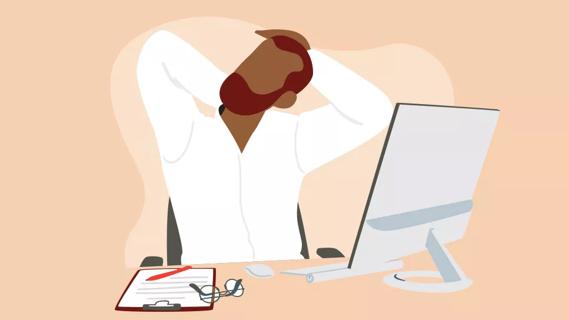Finding a healthy balance in your fitness routine

In a culture of media obsession and a season of “beach bodies,” many people step up their exercise game in the warmer months. But when insecurities arise, some can turn to compulsive exercise to find relief.
Cleveland Clinic is a non-profit academic medical center. Advertising on our site helps support our mission. We do not endorse non-Cleveland Clinic products or services. Policy
Psychologist Scott Bea, PsyD, explains some of the reasoning behind this obsessive behavior and how to return to a healthy routine.
Initial stressors such as anxiety and false-imaging can trigger a spike in exercising, says Dr. Bea. This is similar to the start of many other compulsive behaviors.
Patients can adopt a ‘fix-it’ mentality when it comes to exercise. Though working out can be uncomfortable, not achieving the ‘ideal’ body image is more uncomfortable for individuals who suffer from body image insecurities.
Many people who tend to exercise compulsively also suffer from eating disorders. “People can enter a vicious cycle to achieve what society tells them is a ‘healthy’ look,” says Dr. Bea. Exercise and diet are two objectives that people can control when looking for a way to manage anxiety and stress. The problem arises when individuals begin exercising for extended amounts of time each day, and restricting their eating habits.
Some individuals turn to compulsive behaviors to try and cope with discomfort in their lives. So it can be hard to regulate their lifestyle to a balanced level, explains Dr. Bea.
“I suggest finding a therapist that specializes in various psychotherapy tactics,” Dr. Bea offers. “Finding a trusted professional to help modify your regimen to an appropriate level will help you work through concerns of gaining weight or losing your ideal body shape.”
And if you suspect that a friend or a loved one is suffering an exercise disorder? Start with gaining their insight on their exercise habits instead of sharing your opinion first, Dr. Bea advises. “Acting as an authority over the individual can cause them to be more defensive,” he explains. “If you are receiving lots of pushback, suggest your friend or loved one to talk to their physician.”
Learn more about our editorial process.

Chair exercises can help people age 65+ retain independence

Both are needed for a healthy body

Counteract psoas muscle stiffness and soreness with stretches that lengthen and strengthen

It may be OK, depending on your health, fitness level and type of exercise

Simple exercises like wall angels and pelvic tilts can help keep your body in an optimal position — and help undo years of improper posture habits

Losing belly fat can reduce your risk for chronic health conditions — try focusing on a diet high in lean protein, exercising regularly, reducing stress and getting quality ZZZs

It’s best to exercise before or after your fast, instead of during it

Absolutely! In fact, in many ways, exercise is key to recovery

Your metabolism may torch 1,300 to 2,000 calories daily with no activity

A gentle touch in all the right places may help drain your sinuses